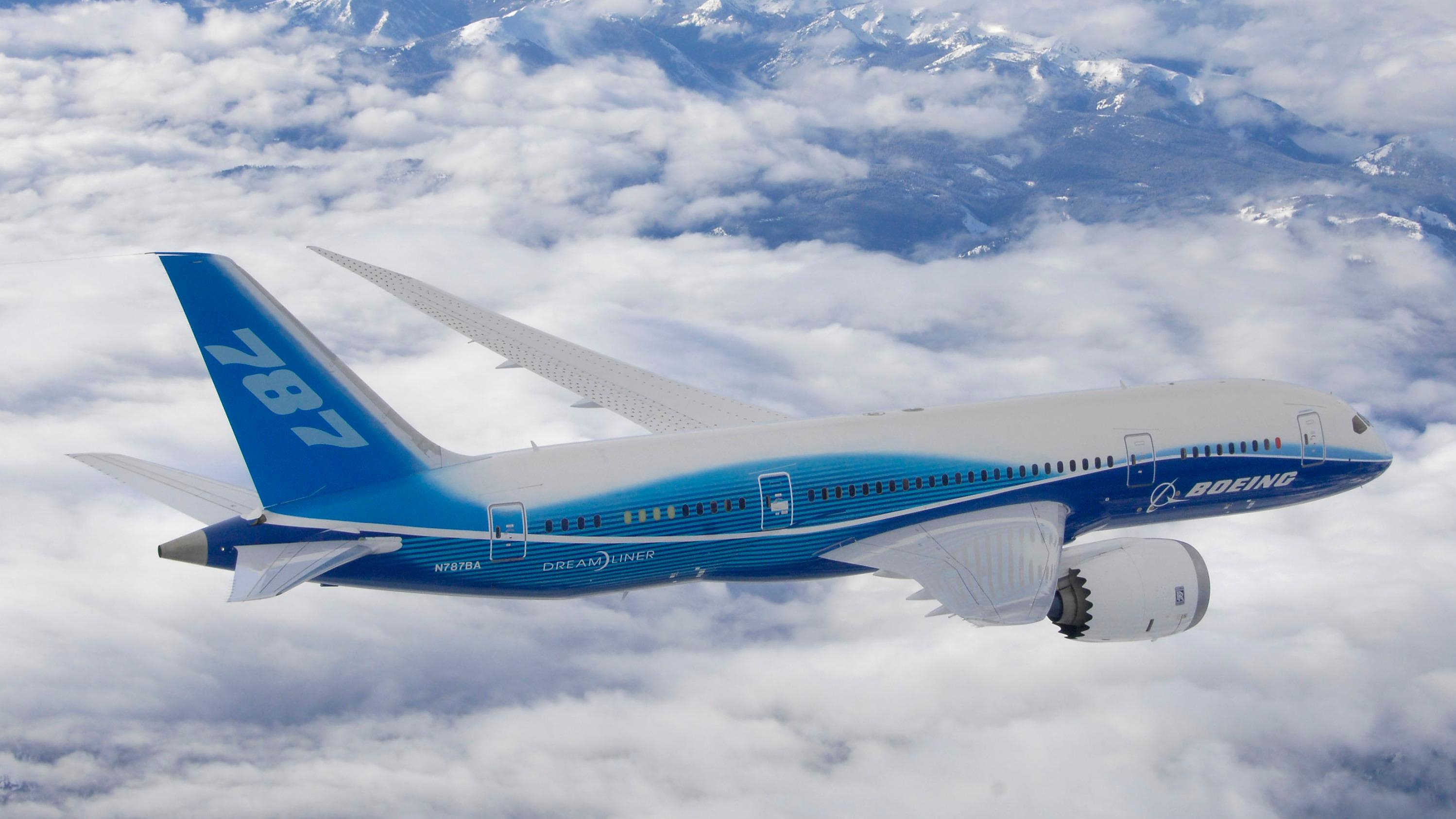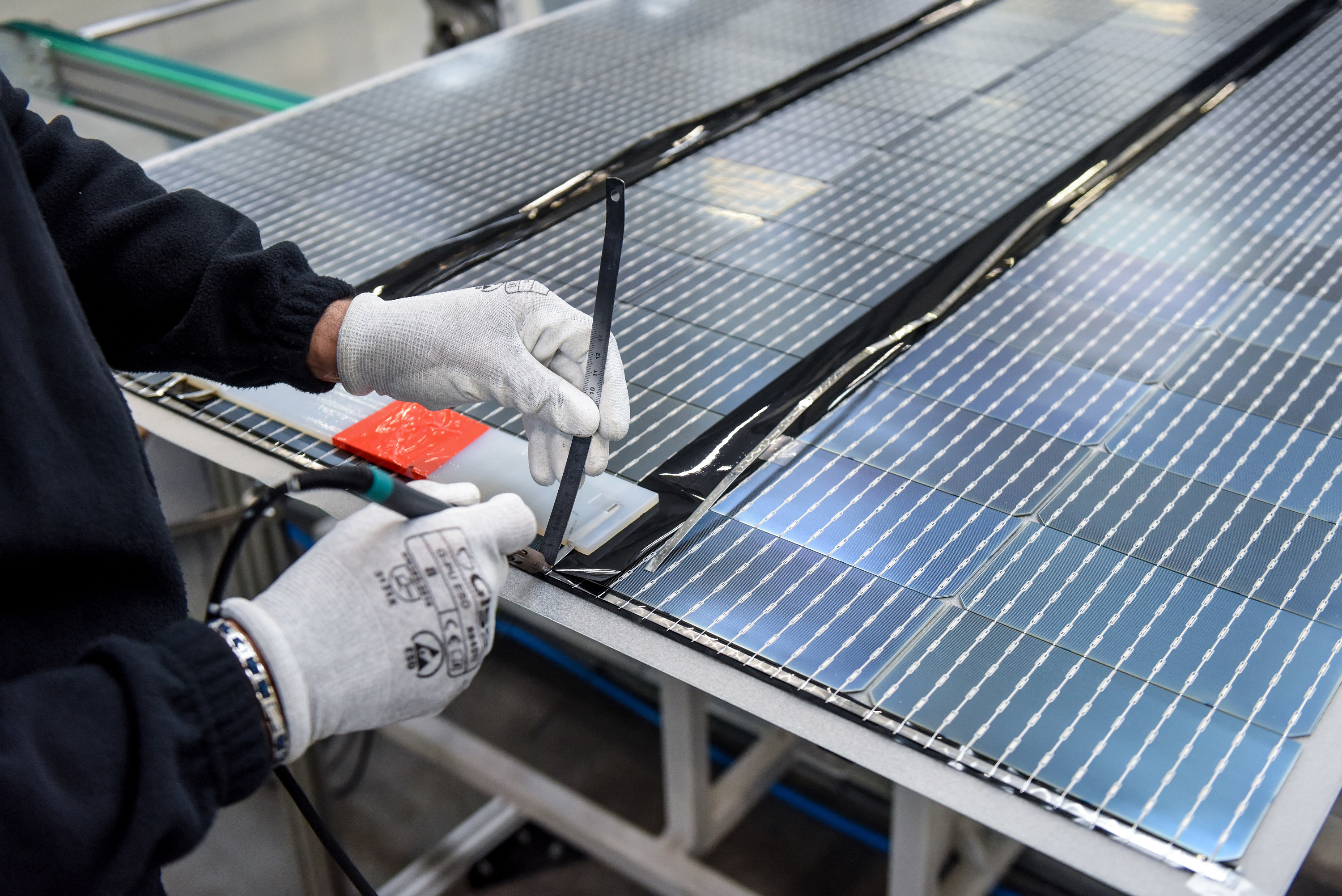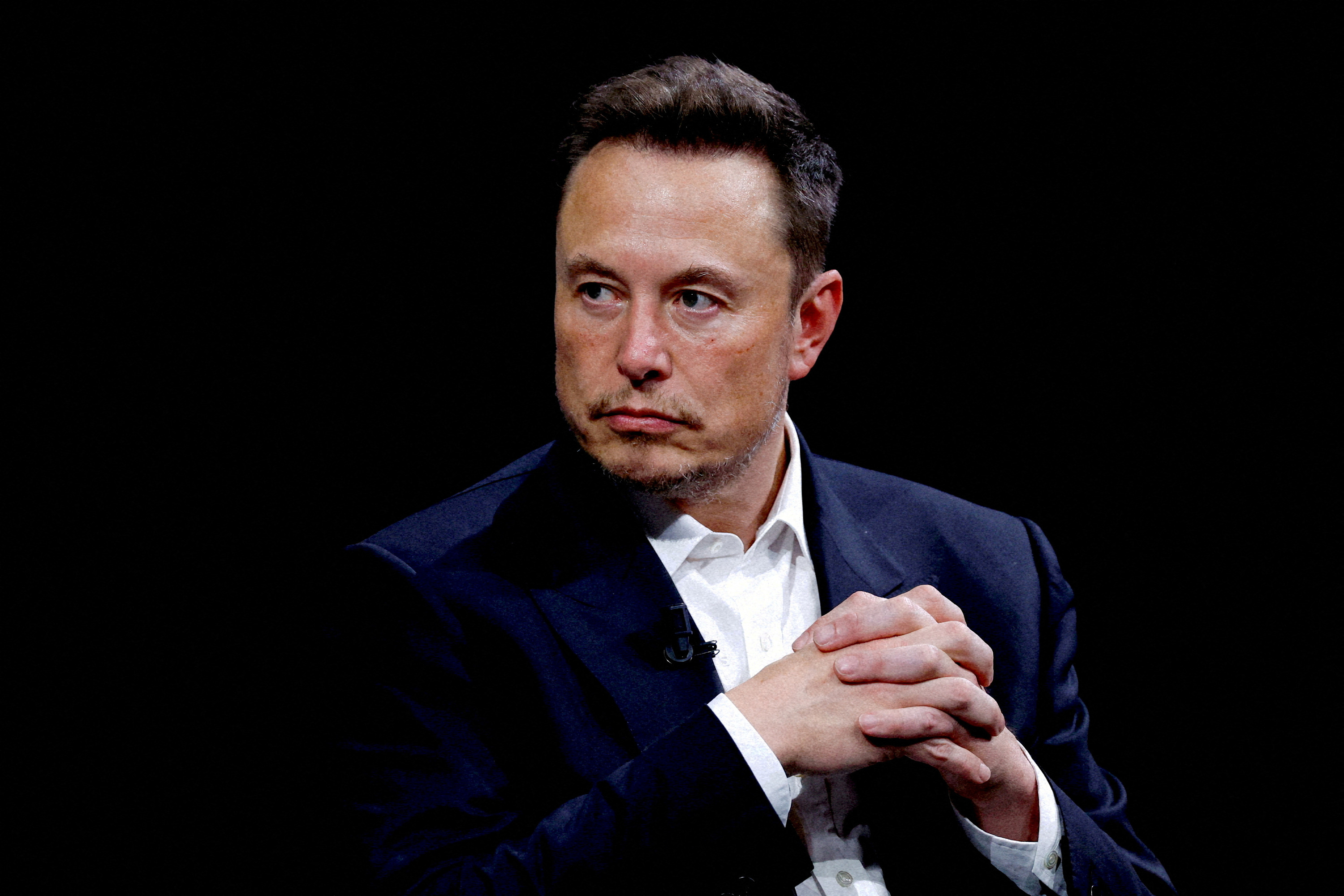Rino Brugge trudges in his safety shoes past the almost 430 meter long dry dock. Cold rain comes down from the Baltic Sea into the Kiel Fjord, the wind makes the long walk uncomfortable. The boss of the shipyard German Naval Yards explains the upcoming work on the supply ship "Berlin" of the German Navy.
Then the Dutchman opens the door to the large Hall 11 and shows the steel work on the forecastle of frigate 130. Only a few shipyard workers can be seen. In general, the huge site of GNY, as the abbreviation goes, seems deserted. Brugge is the governor in Germany for Iskandar Safa, a businessman who was born in Beirut, Lebanon and lives in France. He owns naval shipyards in France, Great Britain and in Kiel.
The owner's original desire to turn it into a leading European naval shipbuilder has not materialized to this day. In his first interview as shipyard boss, Brugge calls for an “industrial policy for naval shipbuilding” in Germany.
WORLD: Mr. Brugge, we are on the site of the former largest German naval shipbuilder Howaldtswerke Deutsche Werft and today's naval shipyard German Naval Yards. The naval ship “Berlin” can be seen in the dry dock directly in front of your office window. Is this your only current assignment?
Rino Brugge: That's not our only job, but it's the biggest at the moment. We will be working on the German Navy's supply ship for almost a year and will completely overhaul it. In addition, we are currently manufacturing the steel construction of the bow of the Corvette 130 in Hall 11. We are one of the few large shipyards in naval shipbuilding in Germany and work closely with other shipyard groups. In the next few years, the steel construction for the new frigate 126, which is being developed by Damen Naval in the Netherlands and largely built in Germany, will be added. That will keep us busy until the end of the decade.
WORLD: Shouldn't there be new orders for military ships from the federal government's special fund for the Bundeswehr?
Brugge: We have not received anything from the EUR 100 billion program for the Bundeswehr. We actively sought and approached the Department of Defense. My impression is that before the special fund and the proclamation of a turning point, more naval shipbuilding projects were being planned by the Bundeswehr than is the case now.
For example, the third lot for five more Corvettes 130, which are to be built by a consortium, is still outstanding. I have hope that the new Secretary of Defense will bring more movement to the awarding of contracts. It would be good for our planning security if new German Navy projects were not postponed too far into the future.
WORLD: Your competitors Lürssen Naval and ThyssenKrupp Marine Systems will benefit most from this. Since your shipyard didn't get the billion-euro order for the 126 frigate and will only do some steel work for the ships, German Naval Yards seems to be out of the running for the navy in Germany. The frigate is built by Damen Naval in the Netherlands.
Brugge: In Germany there is very close cooperation in naval shipbuilding and we are part of it. It would be good if a unit would emerge from the patchwork quilt of the German naval shipyards. In my view, we need to talk about consolidation. However, this must be politically desired and also controlled by politics. I consider it a prerequisite of a strategic security policy to consolidate naval shipbuilding in Germany. If desired, we will participate.
WORLD: The submarine shipyard TKMS wants to apply for a new design for the successor ship Frigate 127 and build surface ships again. The ThyssenKrupp subsidiary bought the former MV shipyard in Wismar especially for this purpose. Not there again?
Brugge: This new frigate is a very long-term project and only at an early stage. And as far as TKMS is concerned: I do not rule out that German Naval Yards will also apply for it. In the end, no shipyard will be able to build such a program on its own.
WORLD: German Naval Yards currently has just 400 employees, some of whom are on short-time work. How do you intend to bring work to this huge shipyard site?
Brugge: The short-time work only affects a very small part of the workforce and will be phased out in the summer. We are expected to receive the order as general contractor for equipping the supply ship "Berlin" with a marine rescue center. That is a mid double-digit million euro amount. We are part of the international shipyard group CMN Naval made up of CMN Cherbourg in France, Isherwoods in the UK and German Naval Yards. We receive orders from this group, for example for the steel construction of small naval ships. I expect us to have good capacity utilization by the end of the decade. As far as the number of employees is concerned, I expect to hire new people next year.
WORLD: The CMN Naval shipyard group is owned by Iskandar Safa, a Lebanese-born businessman. Is that a reason why your shipyard has not been able to take on orders?
Brugge: Our shareholder supports us on our way and in the cooperation with other shipyards in Germany. Recently there have been no orders for German naval shipyards. The frigate 126 went to the Netherlands. This should probably not be repeated in further tenders by the German Navy, because such ships will no longer have to be tendered Europe-wide in the future.
That's why I think consolidation in Germany is important. The country stands for the construction of high-quality naval ships. For your own safety, you need an industrial policy for naval shipbuilding. It's different in France or Italy with the state shipyards there. This puts the German naval shipyards at a disadvantage when it comes to orders from abroad. We are in competition with each other instead of with foreign shipyard groups.
WORLD: Other shipyards promise business through the expansion of wind power at sea. Platforms for converters, for example, will be required on a larger scale in the coming years. Is that a beacon of hope for you?
Brugge: High-quality platforms for the energy transition can be a business if it involves sufficient quantities. For this, too, we need a German industrial policy. Cheap offers from Asia should not be the solution for orders as part of the German energy transition. Our dependence on China is already high.
WORLD: Your shipyard has worked at a loss in recent years. What's next?
Brugge: In recent years, like other companies, we have had to accept losses due to Corona. This year we will return to positive territory. This is likely to remain the case until the end of the decade. I expect an increase in sales for 2023.
"Everything on shares" is the daily stock exchange shot from the WELT business editorial team. Every morning from 5 a.m. with the financial journalists from WELT. For stock market experts and beginners. Subscribe to the podcast on Spotify, Apple Podcast, Amazon Music and Deezer. Or directly via RSS feed.

 Torrential rains in Dubai: “The event is so intense that we cannot find analogues in our databases”
Torrential rains in Dubai: “The event is so intense that we cannot find analogues in our databases” Rishi Sunak wants a tobacco-free UK
Rishi Sunak wants a tobacco-free UK In Africa, the number of millionaires will boom over the next ten years
In Africa, the number of millionaires will boom over the next ten years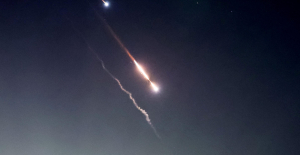 Iran's attack on Israel: these false, misleading images spreading on social networks
Iran's attack on Israel: these false, misleading images spreading on social networks New generation mosquito nets prove much more effective against malaria
New generation mosquito nets prove much more effective against malaria Covid-19: everything you need to know about the new vaccination campaign which is starting
Covid-19: everything you need to know about the new vaccination campaign which is starting The best laptops of the moment boast artificial intelligence
The best laptops of the moment boast artificial intelligence Amazon invests 700 million in robotizing its warehouses in Europe
Amazon invests 700 million in robotizing its warehouses in Europe Switch or signaling breakdown, operating incident or catenaries... Do you speak the language of RATP and SNCF?
Switch or signaling breakdown, operating incident or catenaries... Do you speak the language of RATP and SNCF? Transport in Île-de-France: operators are pulling out all the stops on passenger information before the Olympics
Transport in Île-de-France: operators are pulling out all the stops on passenger information before the Olympics Radio audiences: France Inter remains firmly in the lead, Europe 1 continues its rise
Radio audiences: France Inter remains firmly in the lead, Europe 1 continues its rise Russian cyberattacks pose a global “threat”, Google warns
Russian cyberattacks pose a global “threat”, Google warns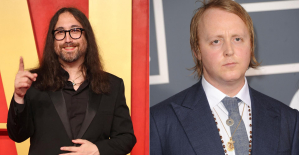 A new Lennon-McCartney duo, more than 50 years after the Beatles split
A new Lennon-McCartney duo, more than 50 years after the Beatles split The Curse vs Immaculée: two thrillers but only one plot
The Curse vs Immaculée: two thrillers but only one plot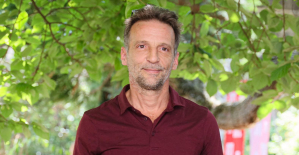 Mathieu Kassovitz adapts The Beast is Dead!, the comic book about the Second World War and the Occupation by Calvo
Mathieu Kassovitz adapts The Beast is Dead!, the comic book about the Second World War and the Occupation by Calvo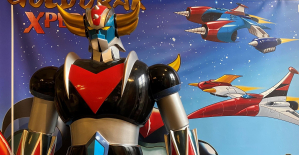 Goldorak 'has never lived so much as now'
Goldorak 'has never lived so much as now' Skoda Kodiaq 2024: a 'beast' plug-in hybrid SUV
Skoda Kodiaq 2024: a 'beast' plug-in hybrid SUV Tesla launches a new Model Y with 600 km of autonomy at a "more accessible price"
Tesla launches a new Model Y with 600 km of autonomy at a "more accessible price" The 10 best-selling cars in March 2024 in Spain: sales fall due to Easter
The 10 best-selling cars in March 2024 in Spain: sales fall due to Easter A private jet company buys more than 100 flying cars
A private jet company buys more than 100 flying cars This is how housing prices have changed in Spain in the last decade
This is how housing prices have changed in Spain in the last decade The home mortgage firm drops 10% in January and interest soars to 3.46%
The home mortgage firm drops 10% in January and interest soars to 3.46% The jewel of the Rocío de Nagüeles urbanization: a dream villa in Marbella
The jewel of the Rocío de Nagüeles urbanization: a dream villa in Marbella Rental prices grow by 7.3% in February: where does it go up and where does it go down?
Rental prices grow by 7.3% in February: where does it go up and where does it go down? Europeans: the schedule of debates to follow between now and June 9
Europeans: the schedule of debates to follow between now and June 9 Europeans: “In France, there is a left and there is a right,” assures Bellamy
Europeans: “In France, there is a left and there is a right,” assures Bellamy During the night of the economy, the right points out the budgetary flaws of the macronie
During the night of the economy, the right points out the budgetary flaws of the macronie Europeans: Glucksmann denounces “Emmanuel Macron’s failure” in the face of Bardella’s success
Europeans: Glucksmann denounces “Emmanuel Macron’s failure” in the face of Bardella’s success These French cities that will boycott the World Cup in Qatar
These French cities that will boycott the World Cup in Qatar Champions League: semi-final schedule revealed
Champions League: semi-final schedule revealed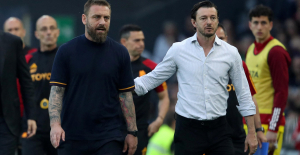 Serie A: AS Roma extends Daniele De Rossi
Serie A: AS Roma extends Daniele De Rossi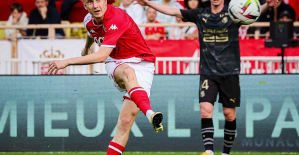 Ligue 1: hard blow for Monaco with Golovin’s premature end to the season
Ligue 1: hard blow for Monaco with Golovin’s premature end to the season Paris 2024 Olympics: two French people deprived of the Olympic Games because of a calculation error by the international federation?
Paris 2024 Olympics: two French people deprived of the Olympic Games because of a calculation error by the international federation?





